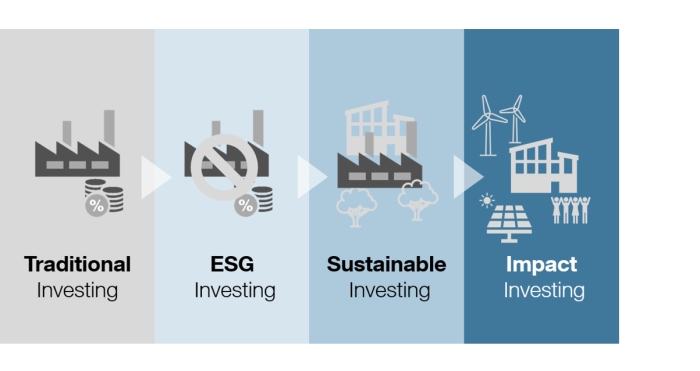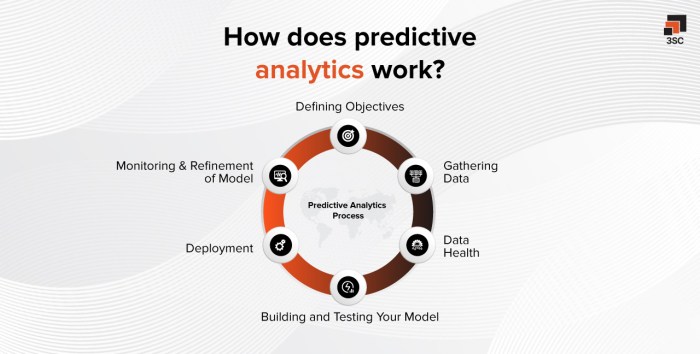The Importance of Consistent Financial Record-Keeping is paramount for both personal and business success. Maintaining accurate financial records isn’t merely about tracking income and expenses; it’s about gaining a clear understanding of your financial health, making informed decisions, and ensuring preparedness for tax season and potential audits. This comprehensive guide explores effective methods, technological tools, and strategies to establish and maintain a robust financial record-keeping system, empowering you to navigate your financial future with confidence.
From simple budgeting apps to sophisticated accounting software, we’ll delve into the various options available, weighing their pros and cons to help you choose the system best suited to your needs. We’ll also address common challenges, such as time constraints and technological hurdles, offering practical solutions to ensure consistent record-keeping regardless of your circumstances. Ultimately, this guide aims to equip you with the knowledge and tools necessary to achieve lasting financial clarity and control.
The Benefits of Accurate Financial Record-Keeping
Maintaining precise financial records is crucial for both personal and business success. Accurate record-keeping provides a clear picture of your financial health, enabling informed decision-making and mitigating potential risks. This practice extends beyond simply tracking income and expenses; it involves meticulously documenting all financial transactions, creating a comprehensive and reliable history of your financial activities.
Improved Financial Decision-Making
Accurate financial records provide the foundation for sound financial planning. By having a clear understanding of your income, expenses, and net worth, you can make informed decisions regarding budgeting, saving, investing, and debt management. For example, a detailed analysis of spending habits, revealed through accurate records, might highlight areas where unnecessary expenses can be reduced, leading to increased savings. Similarly, tracking investment performance allows for timely adjustments to your investment strategy based on actual returns, rather than relying on estimations. In contrast, inaccurate records can lead to poor budgeting, missed investment opportunities, and the accumulation of unnecessary debt.
Negative Consequences of Inaccurate Records
The absence of precise financial records or the presence of inaccurate ones can have severe repercussions. For instance, an individual miscalculating their tax liability due to incomplete records could face penalties and interest charges from the tax authorities. Businesses operating without proper accounting could struggle to secure loans or attract investors, as lenders and investors rely on financial statements to assess risk and potential returns. Inaccurate inventory tracking can lead to stockouts or overstocking, impacting profitability and customer satisfaction. Consider a small business owner who, due to inaccurate sales records, misjudges demand and orders too much inventory, tying up capital and potentially leading to losses on unsold goods.
Impact on Tax Preparation and Audits
Consistent and accurate record-keeping is paramount during tax season and potential audits. Detailed records simplify the tax preparation process, reducing the likelihood of errors and delays. Having readily available documentation supporting all claimed deductions and credits significantly strengthens your position during an audit. Conversely, inadequate or inaccurate records can result in lengthy audits, increased scrutiny, and potential penalties. For example, if a freelancer fails to maintain detailed records of business expenses, they might be unable to claim legitimate deductions, leading to a higher tax liability.
Manual vs. Automated Record-Keeping
| Feature | Manual Record-Keeping | Automated Record-Keeping |
|---|---|---|
| Cost | Low initial cost, potential for higher time investment | Higher initial cost (software, subscriptions), lower time investment |
| Accuracy | Prone to human error | Generally more accurate, reduces manual data entry errors |
| Efficiency | Time-consuming, requires manual data entry and organization | More efficient, automates data entry and reporting |
| Scalability | Difficult to scale with business growth | Easily scalable to accommodate increasing volume of transactions |
Methods for Effective Financial Record-Keeping

Maintaining accurate and organized financial records is crucial for effective personal finance management. A well-structured system allows for easy tracking of income and expenses, simplifies tax preparation, and provides valuable insights into spending habits, enabling informed financial decisions. Choosing the right method depends on individual needs and technological comfort levels.
Budgeting Apps
Budgeting apps offer a user-friendly approach to financial record-keeping, often incorporating features beyond basic tracking. Many apps automatically categorize transactions, generate reports, and provide personalized financial advice. Popular examples include Mint, Personal Capital, and YNAB (You Need A Budget). While these apps are generally convenient and accessible, some may have limitations regarding customization and the level of detail they offer. Security is another factor to consider; users should choose reputable apps with strong security measures and privacy policies. Cost can range from free (with limited features) to subscription-based models offering advanced functionalities.
Spreadsheets
Spreadsheets, such as those found in Microsoft Excel or Google Sheets, provide a highly customizable and versatile method for tracking finances. Users can create their own templates tailored to their specific needs, allowing for detailed categorization and analysis. Spreadsheets offer a high degree of control and flexibility but require a degree of technical proficiency to set up and maintain effectively. Data security relies on the user’s ability to protect their files and maintain regular backups. The cost is generally low, as most users already have access to spreadsheet software.
Accounting Software
Accounting software offers a more robust solution for individuals with complex financial situations or businesses. Software like QuickBooks or Xero provides advanced features for managing accounts payable and receivable, generating financial statements, and integrating with other financial tools. These programs are often more expensive than budgeting apps or spreadsheets, and require a steeper learning curve. However, they provide comprehensive features and robust security measures. Data security is generally high due to the software’s built-in features and regular updates.
Best Practices for Organizing and Storing Financial Documents
Effective organization is key to efficient financial record-keeping. A well-defined system for both physical and digital documents is essential. Physical documents, such as bank statements and tax returns, should be stored in a secure, fireproof location, ideally organized chronologically or by category. Digital documents should be stored using a cloud-based service with strong security features, or on an encrypted external hard drive. Regular backups are crucial to prevent data loss. Consider using a filing system that clearly identifies the type and date of each document.
Setting Up a Basic Financial Record-Keeping System
1. Choose a Method: Select a method that aligns with your technical skills and financial complexity.
2. Create a Chart of Accounts: Establish categories for income and expenses (e.g., salary, rent, groceries, utilities).
3. Record Transactions Regularly: Enter all income and expense transactions promptly.
4. Reconcile Accounts: Regularly compare your records with bank and credit card statements to identify discrepancies.
5. Back Up Data: Regularly back up your financial records to prevent data loss.
Categorizing Transactions Effectively
Effective categorization is essential for insightful financial analysis. Use a consistent and detailed system. For example, instead of just “Groceries,” you might use subcategories like “Groceries-Produce,” “Groceries-Dairy,” and “Groceries-Meat.” This allows for a more granular understanding of spending habits. Consistent categorization allows for accurate reporting and budgeting. Using a standardized chart of accounts helps to maintain consistency over time.
Maintaining Consistency in Financial Record-Keeping: The Importance Of Consistent Financial Record-Keeping

Maintaining consistent financial record-keeping is crucial for effective financial management. A well-maintained system allows for accurate tracking of income and expenses, facilitates tax preparation, and provides valuable insights into spending habits. Inconsistent record-keeping, however, can lead to inaccurate financial statements, missed tax deductions, and difficulty in making informed financial decisions. Establishing and adhering to a robust system is therefore paramount.
Consistent record-keeping can be challenging, especially during busy periods. However, implementing effective strategies can significantly improve adherence. The key lies in establishing a system that is simple, efficient, and easily integrated into daily routines. Proactive planning and the use of appropriate tools can greatly minimize the burden and ensure that financial records remain up-to-date.
Strategies for Maintaining Consistent Record-Keeping During Busy Periods
Time constraints often lead to neglecting financial record-keeping. To mitigate this, consider batching similar tasks. For example, dedicate a specific time each week to reviewing receipts and entering transactions. Utilizing automated tools, such as budgeting apps or accounting software, can also streamline the process and significantly reduce manual effort. Prioritizing record-keeping as an essential task, similar to other important appointments, can help ensure it receives the necessary attention. Finally, breaking down the task into smaller, manageable chunks can make the process feel less overwhelming.
Avoiding Common Mistakes and Pitfalls in Financial Record-Keeping
Inaccurate or incomplete records are common pitfalls. Failing to categorize transactions properly, omitting transactions altogether, and using inconsistent methods of recording data all contribute to flawed financial statements. To avoid these issues, ensure that all transactions are properly categorized and documented, utilizing a consistent method for recording dates, amounts, and descriptions. Regularly reviewing and reconciling records against bank and credit card statements can help identify and correct errors early on. Consider creating a checklist to ensure all necessary steps are followed consistently.
Regular Reconciliation of Bank Statements and Credit Card Accounts
Reconciling bank and credit card statements is a critical step in ensuring the accuracy of financial records. This involves comparing transactions recorded in your records with those reported by your financial institution. Discrepancies should be investigated and resolved promptly. Regular reconciliation, ideally monthly, helps identify errors, fraud, or unauthorized transactions. This process allows for early detection and correction of any inaccuracies before they accumulate and create larger problems. It also provides a sense of confidence in the accuracy of your financial data.
Creating a System for Regular Review and Updates of Financial Records
A formal system for reviewing and updating financial records should be implemented. This involves setting aside dedicated time, perhaps monthly or quarterly, to review all financial records for accuracy and completeness. This review should include checking for any missing transactions, correcting errors, and updating categories as needed. The system should also incorporate procedures for archiving old records securely and efficiently. This regular review process is crucial for maintaining the long-term integrity and usefulness of your financial data.
Tools and Resources for Consistent Financial Record-Keeping
Several tools and resources can aid in consistent financial record-keeping.
- Accounting Software: Programs like QuickBooks, Xero, or FreshBooks automate many aspects of record-keeping, including invoice generation, expense tracking, and report generation.
- Spreadsheet Software: Microsoft Excel or Google Sheets can be used to create customized financial tracking systems.
- Budgeting Apps: Mint, YNAB (You Need A Budget), and Personal Capital provide tools for budgeting, tracking spending, and managing finances.
- Receipt Scanning Apps: Apps like Shoeboxed or Neat scan receipts and automatically extract relevant information.
- Financial Planners: A financial advisor can provide guidance and support in setting up and maintaining a comprehensive financial record-keeping system.
The Role of Technology in Financial Record-Keeping

Technology has revolutionized how individuals and businesses manage their finances. The accessibility and efficiency offered by various software and apps significantly improve the accuracy and consistency of financial record-keeping, ultimately leading to better financial health and decision-making. This section explores the various technological tools available, the necessary security measures, and the advantages of cloud-based solutions.
Comparison of Financial Software and Apps
A wide array of financial software and apps cater to diverse needs, ranging from simple budgeting tools to comprehensive accounting platforms. Spreadsheet programs like Microsoft Excel or Google Sheets offer basic functionalities for tracking income and expenses, suitable for individuals with straightforward financial needs. However, for businesses or individuals with complex financial situations, dedicated accounting software like QuickBooks, Xero, or FreshBooks provide more advanced features such as invoice generation, expense tracking, and financial reporting. Mobile apps like Mint or Personal Capital offer convenient ways to monitor accounts, track spending, and set financial goals. The choice depends on individual needs and technical expertise; simpler options are suitable for personal use, while more robust software is necessary for businesses.
Security Measures for Protecting Financial Data, The Importance of Consistent Financial Record-Keeping
Protecting financial data is paramount. Strong passwords, employing multi-factor authentication whenever possible, and regularly updating software are crucial steps. Individuals and businesses should avoid using public Wi-Fi for sensitive financial transactions and be wary of phishing scams. Regularly reviewing account statements for unauthorized activity is also essential. Implementing robust firewalls and antivirus software is crucial for businesses to protect their systems from cyber threats. Data encryption both in transit and at rest is another vital security measure to safeguard sensitive financial information from unauthorized access. For businesses, regular security audits and employee training on cybersecurity best practices are highly recommended.
Benefits of Cloud-Based Financial Record-Keeping
Cloud-based solutions offer several advantages for storing and accessing financial records. Accessibility from anywhere with an internet connection is a significant benefit, allowing for real-time monitoring and management of finances. Cloud storage providers typically offer robust security measures, including data encryption and backups, reducing the risk of data loss. Automated backups and disaster recovery features further enhance data security and business continuity. Furthermore, cloud-based solutions often offer scalability, allowing businesses to easily adapt their storage capacity as their needs grow. The cost-effectiveness of cloud storage, eliminating the need for expensive on-site servers and IT infrastructure, is also a compelling advantage.
Checklist for Selecting Financial Record-Keeping Software
Choosing the right financial record-keeping software requires careful consideration. Here’s a checklist of essential features:
- User-friendly interface and intuitive navigation.
- Comprehensive reporting and analytics capabilities.
- Secure data storage and encryption.
- Integration with other financial tools and accounts.
- Scalability to accommodate future growth.
- Reliable customer support and documentation.
- Compliance with relevant financial regulations.
Backing Up and Securing Financial Data
Regular backups are essential for preventing data loss. Using a cloud service involves setting up automatic backups at regular intervals (daily or weekly). This involves selecting the specific files or folders containing financial records and configuring the cloud service to automatically upload these data to the cloud storage. Verification of successful backups should be performed regularly. For external hard drives, the process involves connecting the external drive to the computer, selecting the financial records to be backed up, and copying them to the external drive. It’s crucial to store the external drive securely in a separate location to protect against theft or damage. Regular testing of the backup process is recommended to ensure its functionality. Both methods should be used ideally to create a robust backup strategy. Consider using a version control system for particularly important documents, so you can revert to older versions if needed.
Addressing Challenges in Financial Record-Keeping
Maintaining consistent and accurate financial records can present significant hurdles for both individuals and businesses. These challenges often stem from a combination of factors, including limited time, technological barriers, and a lack of financial literacy. Overcoming these obstacles requires a proactive and adaptable approach, incorporating strategies to streamline processes, leverage available resources, and seek professional guidance when necessary.
Numerous obstacles can impede the effective maintenance of financial records. Time constraints are a common issue, particularly for individuals juggling multiple responsibilities or businesses operating with limited staff. Technological limitations, such as a lack of access to reliable software or insufficient digital literacy, can also hinder the process. Furthermore, a lack of financial literacy can lead to confusion about record-keeping best practices and the importance of accurate data. These factors often intertwine, creating a complex challenge that necessitates a multifaceted solution.
Check Accounting for Inventory: FIFO vs LIFO Explained to inspect complete evaluations and testimonials from users.
Strategies for Overcoming Challenges in Financial Record-Keeping
Effective strategies for overcoming these challenges involve prioritizing record-keeping, simplifying processes, and leveraging available resources. Implementing user-friendly software can significantly reduce the time and effort required for data entry and analysis. Utilizing cloud-based solutions offers enhanced accessibility and security. For individuals with limited financial literacy, seeking guidance from workshops, online tutorials, or financial literacy programs can improve understanding and confidence.
The Importance of Seeking Professional Help
When facing complex financial situations or significant record-keeping challenges, seeking professional assistance is crucial. Certified public accountants (CPAs) and financial advisors possess the expertise to provide tailored guidance, helping individuals and businesses establish robust record-keeping systems and navigate complex tax regulations. They can offer valuable insights into financial planning, budgeting, and investment strategies, ultimately improving financial health and stability. For example, a small business owner struggling with tax compliance could benefit immensely from a CPA’s expertise in navigating tax laws and accurately filing returns. Similarly, individuals facing a major life event, such as retirement or inheritance, can benefit from a financial advisor’s guidance in managing their finances effectively.
Adapting Record-Keeping Practices to Changing Circumstances
Financial record-keeping practices must adapt to evolving circumstances. Starting a business necessitates establishing a comprehensive accounting system to track income, expenses, and inventory. This might involve adopting accounting software tailored to small businesses and adhering to relevant tax regulations. Major life events, such as marriage, divorce, or the birth of a child, also necessitate adjustments to financial planning and record-keeping. For instance, a couple getting married needs to update their financial records to reflect their joint income and assets. Similarly, a significant inheritance requires careful documentation and planning to manage the newfound wealth effectively. Adaptability and a willingness to seek professional guidance are essential to ensure financial records remain accurate and relevant throughout life’s transitions.
Ultimate Conclusion
Consistent financial record-keeping, while initially demanding, ultimately provides invaluable benefits. By implementing the strategies and tools discussed, you can transform your approach to financial management, fostering a proactive and informed relationship with your finances. From improved decision-making and streamlined tax preparation to enhanced security and peace of mind, the rewards of diligent record-keeping far outweigh the effort involved. Embrace the power of organization and precision, and unlock the potential for greater financial success.
FAQ Guide
What happens if I don’t keep consistent financial records?
Inconsistent record-keeping can lead to inaccurate tax filings, difficulty securing loans, missed investment opportunities, and a lack of understanding regarding your financial health.
How often should I reconcile my bank statements?
Ideally, reconcile your bank and credit card statements monthly to identify discrepancies and prevent errors from accumulating.
What are some signs I need professional financial help?
Signs include feeling overwhelmed by your finances, struggling to understand complex financial documents, or consistently making poor financial decisions.
Can I use free software for financial record-keeping?
Yes, many free budgeting apps and spreadsheet templates are available, although paid software often offers more advanced features and security.








